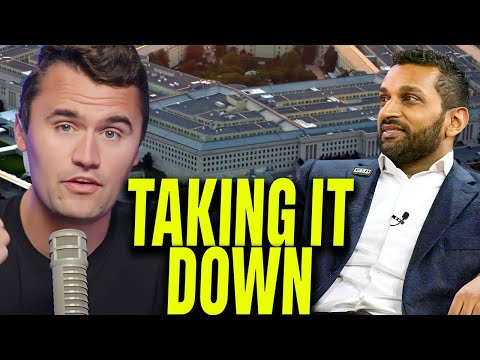**Cash Patel: A Bold Nomination for FBI Director Fuels Debate on Bureaucratic Overreach**
In a political landscape increasingly characterized by tension between the establishment and those advocating for change, the nomination of Cash Patel as FBI Director has set the stage for a lively debate. The appointment is prompting Americans to ponder a significant question: Should the FBI operate as its own independent entity, or should it answer directly to the elected leaders of the country? Within this discussion lives the spirit of the Founding Fathers and their vision for a government that serves the people rather than bureaucratic elites.
Many conservatives believe there is a widespread misunderstanding of the FBI’s role in the government. Contrary to the popular belief that the FBI is a standalone branch, the reality is that both the FBI and the Department of Justice function under the executive branch, reporting directly to the President of the United States. This intricate power dynamic has been questioned over the years, especially since the presidency of Woodrow Wilson, who was known for his progressive ideas that encouraged the growth of unaccountable bureaucracy.
Wilson championed a plan that veered away from the framework established by the Founding Fathers. Instead of a government kept in check by the three branches, scholars argue he envisioned a system where “experts” would manage it. Unfortunately, this paved the way for numerous federal agencies that many Americans can’t even name, leading to a maze of regulations and a fourth branch of government that appears to operate outside the authority of elected officials. The question now arises: Who is really in control? Is it the citizens or an unaccountable bureaucracy that grows more powerful and opaque as time goes on?
As the FBI stands on this precipice, some conservatives assert that it has morphed from a protector against crime into a tool for political maneuvering. Many recall an era where the FBI was synonymous with competence and bravery, but recent years have seen a shift, aligning the agency more with the enforcement of a particular political agenda. The “secret police” moniker often comes into play, suggesting that the FBI’s focus has drifted far from its original mission and more towards targeting dissenting voices.
The appointment of Patel presents an opportunity for reevaluation. Those in favor argue that Patel could realign the FBI to remember its primary goal: protecting American citizens from crime rather than policing ideas or political beliefs. Here’s where Patel’s credentials come into play. Many view him as uniquely qualified to tackle this challenge head-on, giving the FBI a much-needed reset. Allowing him to take the helm could signal a return to core law enforcement principles and provide an opportunity for the FBI to reclaim its lost reputation.
The inevitable pushback is palpable. Critics are quick to label Patel as the most threatening nominee to democracy in recent history. They raise concerns about his previous roles and alleged willingness to push boundaries in pursuit of political agendas during Trump’s presidency. In the face of such criticisms, supporters of Patel express confidence that he will bring accountability back to a beleaguered organization, propelling it towards a future focused on crime-fighting and justice rather than political manipulation.
In summary, Cash Patel’s nomination as FBI Director represents more than just a new face in a prominent governmental position; it symbolizes a clash of ideals that have been brewing for over a century. The debate over who truly pulls the strings—elected officials or unelected bureaucracies—could either solidify a return to the principles of the Founding Fathers or entrench the current administrative state further. For Americans, the coming months will reveal whether Patel’s appointment unveils a brighter future for the FBI or brings even more contentious battles to the forefront of American politics.



